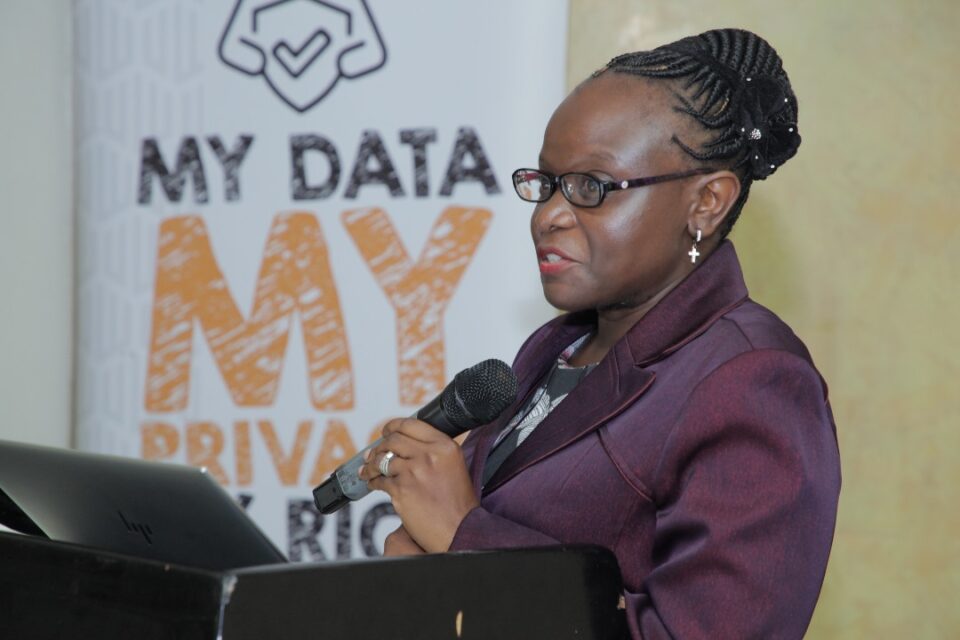Unwanted Witness welcomes a new report published, by the United Nations Special Rapporteur, reaffirming inequalities and injustices caused by mandatory identification systems.

Kampala, 25th/6/2022; We welcome the latest report by the UN Special Rapporteur on Extreme Poverty and Human Rights, Olivier De Schutter, for reaffirming the worrying widespread exclusion of vulnerable communities from accessing life-saving social protection services due to flaws in National identification systems.
The report titled “Non-take-up of rights in the context of social protection,” emphasises that any social protection system designed to exclude is inconsistent with Article 9 of the International Covenant on Economic, Social and Cultural Rights, likening such a system to watering plants with a leaking can”.
Making reference to our joint report, with the Initiative for Social and Economic Rights, and the Center for Human Rights and Global Justice, the UNSR reaffirmed the need for States to accept alternative forms of identification until all individuals receive digital identity cards.
“Although donor-driven initiatives to develop digital identification systems have the potential to make registration easier, some remain highly exclusionary. In Uganda, for example, between 23 and 33 percent of the country’s adult population have not received a national identity card. As long as such situations persist, digital identity systems should not be a prerequisite for benefiting from social protection schemes and when they are set up, they should be designed in a way that is inclusive. Alternative forms of identification, including passports, driving licenses, voter identities, or birth certificates should be accepted until all individuals receive digital identity cards,” the independent expert, Olivier De Schutter, quoted.
The disadvantages of onerous digital identification systems are inherent and affect the most disadvantaged persons like women, mothers, Stateless persons, refugees, migrants, and children, hence entrenching inequalities and injustices contrary to the international instruments protecting the aforementioned groups and the State’s commitment towards achieving Sustainable development goals on reducing inequality and improving gender equity.
Consequently, projects like the digital identification paraded as a messiah for the enjoyment of human rights instead institutionalise and systemize human rights violations. Unwanted Witness affirms that States have a primary obligation of ensuring that “social protection [like other rights] is [should] not just [be] on paper, but to ensure individuals are aware of – and can access – the benefits to which they are entitled” This can only be achieved through legal, policy and institutional frameworks that are so deliberate at ensuring states fulfill their Human Rights obligations.
As an Organisation, alive to the challenges cited by our report and well elaborated in the special rapporteur’s report, together with ISER and HEAPI, we filed a Human rights enforcement suit in the High Court of Uganda challenging among others the use of the Digital Identification as the only form of identification and mandatory requirement of a national Digital Identification to access social services in total disregard of the numerous government-issued identification documents.
Unwanted Witness highly welcomes the UNSR’s report and we look forward to engaging more and ensuring that Digital Identifications is not another scheme that wastes huge resources, tantamounting to watering plants with a leaking can.
About Unwanted Witness
The Unwanted Witness is a Civil Society Organisation (CSO) established to respond to the gap in effective communication using various online expression platforms.
For More Information contact;
THE UNWANTED WITNESS – Uganda |
P. O. Box 71314 Clock Tower K’la Uganda | Plot 26, Ssentema Road |
Website: www.unwantedwitness.org
Telephone: +256 414 697 635
Email: info@unwantedwitness.org | Twitter: @unwantedwitness |




